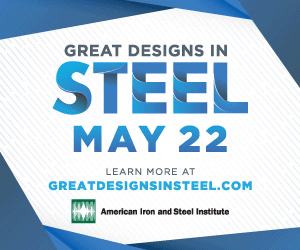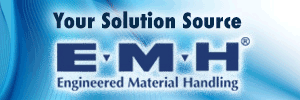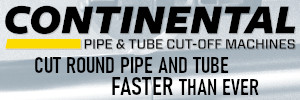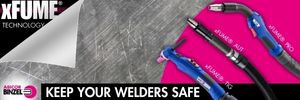Cutting-Edge Forming Technologies
TwinServo press technology and the economic production of composite parts from Schuler enable press rooms to produce resources more efficiently so they can remain marketable and competitive.
Posted: September 13, 2019
In Booth D-46055, Schuler Inc. (Canton, MI) will feature precisely programmable, flexible and efficient presses with TwinServo technology that are driven by two separate torque motors in the press bed. The servo drive reduces energy consumption so that press rooms can produce resources efficiently and remain marketable and competitive. The electronically synchronized drives in presses with TwinServo technology are arranged in such a way that there is still plenty of room for the scrap chutes. The extremely high tilt resistance, combined with the reduction in deflection, leads to an improvement in the quality of the parts, reduces stresses on the die and shortens the die tryout times.
A 1,000 metric ton TwinServo machine with an underfloor drive was recently delivered to Swiss home appliance manufacturer V-ZUG AG (Zug, Switzerland) after extensive analysis of their press shop. The company previously produced all of the sheet metal parts for their washing machines, dryers, ovens, steamer and dishwashers on hydraulic presses, but are gradually transferring production to the servo press. Their coil line is designed in such a way that the machine can process all kinds of sheet, from galvanized sheet steel to mirror-smooth chrome steel surface, using 19.6 ft x 6.5 ft dies that weigh up to 31.5 tons and are automatically moved from the warehouse to the press. Die changeover has been reduced to less than 15 minutes so that the shop can produce even the smallest lot sizes. Approximately 10 km of cable were laid to prepare the servo press for Industry 4.0 connection. State-of-the-art bus systems, decentralized installation techniques and IO-Link-capable sensors were used so that the setting data of the sensors is programmed in the control and can be exchanged without having to be readjusted by the service personnel.
Also being featured during the show is the economic production of composite parts. Composite materials such as carbon fiber reinforced plastics are still used sparingly in lightweight automotive engineering, and have not yet made the leap into series production. The manufacturing costs for parts made of carbon fiber reinforced plastic (CFRP) are simply still too high. Schuler will explain how the economic production of composite parts in the “iComposite 4.0” research project reduced costs for a prototype part by 50 percent and throughput times by 40 percent. The reference component is a floor plate mounted under the engine and passenger compartment of an English sports car. Its structure must be designed for frontal impact, high torsional stiffness and seat load. While the costs for conventional production amount to almost $443, it dropped to around $166.44 for iComposite 4.0. Throughput times went down from 73 minutes to 46 minutes.
In the first production step, for which the RWTH Aachen Institute of Plastics Processing is responsible, a robot sprays the basic structure of short glass fibers. Next, an algorithm – developed by the Aachen Center for Integrative Lightweight Construction (AZL) and CFRP supplier Teijin Carbon – calculates the individual tensile strength. Depending on this, another robot then lays the carbon fiber towpregs in a very specific process that originates from Siemens and Broetje Automation Composites, thereby compensating for component variations. The optical control is performed by a 3D measuring system from Apodius. Resin is then injected into the resulting composite fiber mat. The resin hardens under the high pressure of the hydraulic Schuler press, which forms the part at the end. Die technology from Frimo specialists also influences this process. For the desired wall thickness, the press can directly impact the deflection of the die. This makes it possible to produce good parts right from the start, the rejection rate is reduced to zero.
Previously, manufacturers of fiber composite parts use carbon mats as raw material that needs to be cut. The exploitation may decrease up to 50 percent, meaning almost half of the expensive carbon fibers cannot be used. But with iComposite 4.0, the required material is completely used and the waste is zero. At the same time, throughput time decreases while output increases. An integrated RFID chip from ID-Systec ensures traceability (“track & trace”) of the production data. All components of the production line that runs at the RWTH Aachen AZL are cross-linked to each other. The findings of the research project are now to be incorporated into industrial practice.
Schuler Inc., 7145 Commerce Boulevard, Canton, MI 48187, 734-207-7200, guido.broder@schulergroup.com, www.schulergroup.com.












